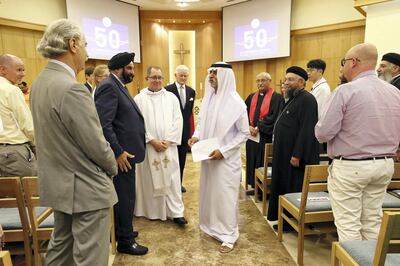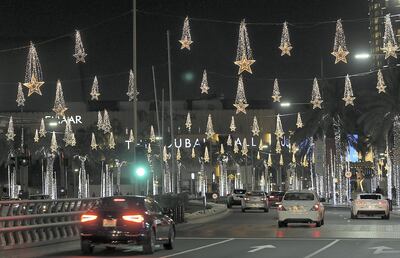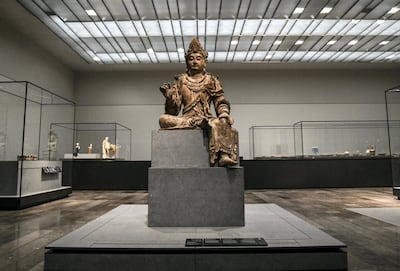Four sons are gathered together by their mother to make her a promise — that they would not repeat the conflict and brutality of the recent past, which had caused misery to their people.
The mother was Sheikha Salama bint Butti, and two of those sons would go on to rule Abu Dhabi peacefully for nearly 80 years. For Founding Father Sheikh Zayed, and his brother Sheikh Shakhbut, this early lesson in tolerance would be at the core of their leadership.
Their understanding of the importance of mutual respect and understanding will be re-emphasised in January, as 2019 has been declared the Year of Tolerance.

The sentiment will reflect the tone of the UAE, which claims to be home to people from every country in the world as well as a multitude of faiths, who live and work together in harmony.
The year will see a historic visit by Pope Francis, who will preach to the faithful in Abu Dhabi and take part in an interfaith meeting that will bring together Christianity and Islam, two faiths that represent around 60 per cent of the world’s population.
This interfaith journey began small. The first foreigners living permanently in Abu Dhabi marked Christmas in December 1957 with a service. A priest attended from Bahrain and the prayers and carols were not just authorised, but actively encouraged by Sheikh Shakhbut, who was the Ruler at the time. He told them: “You need your religion as we need ours.”

The arrival of oil transformed the city and hundreds and then thousands of overseas workers followed. Land was granted to build churches by Sheikh Shakhbut and in 1965, St Joseph’s church opened its doors on the Corniche to Roman Catholics.
For Anglicans, St Andrew’s church began services near by in 1968. The huge numbers of worshippers at both churches led Sheikh Zayed, now Ruler of Abu Dhabi, to donate more land for larger buildings in the city’s Mushrif neighbourhood.
In Dubai, Ruler Sheikh Rashid bin Saeed was also supporting Christian worship, with the first Roman Catholic Church opening in 196, while for Anglicans, Holy Trinity Church was completed in 1970.
_______________
Read more:
From Sikh to Christian, religious leaders gear up for UAE's Year of Tolerance
The Pope's visit: The story of the Roman Catholic Church in the UAE
Abu Dhabi’s first Hindu temple to re-tell ancient stories of wisdom
The first Noël: 60 years of Christmas carols in Abu Dhabi
_______________
Half a century later, the list of religious denominations freely able to worship in the UAE is almost too long to list. There are, by some estimates, at least 33 churches, including Orthodox and Evangelical. In 2013, members of the Church of Later-day Saints, also known as Mormon, opened their first meeting house in Mussaffah.
These places of worship reflect the diversity of the resident population, from the Catholics of Kerala and the Philippines to the Copts of Egypt. On religious holidays their places of worship often literally overflow with the faithful.
There are churches now in Al Ain and Ras al Khaimah. Last month it was widely reported that the small Jewish community had established a synagogue in Dubai.
The Government has long made it clear that it distinguishes between opposition to the policies of Israel and the UAE’s support for the Palestinian people, and its regard for the Hebrew faith.

This tolerance found visible expression with the opening of Louvre Abu Dhabi — in a room darkened to preserve the ancient texts, a Torah from Yemen is displayed next to a medieval Bible and an early Quran.
The freedom to worship extends beyond the three Abrahamic faiths, though. A Hindu prayer hall was permitted to open in 1958 in Bur Dubai, and in 2012, a Sikh temple or Gurudwara was opened in Jebel Ali on land given by Sheikh Mohammed bin Rashid.
Plans for a much grander Hindu temple, built by Indian craftsmen from marble and carved stone, are being made for Abu Dhabi and is due to open in 2020.
Diverse in beliefs, the proximity of faiths worshipping openly has only promoted religious understanding. Last year, Sheikh Mohammed bin Zayed, Crown Prince of Abu Dhabi, observed that “We have learnt from hundreds of thousands of dead and millions of refugees in our region that sectarian, ideological, cultural and religious bigotry only fuel the fires of rage.”
And as his father, Sheikh Zayed once said many years earlier, “to treat every person, no matter what his creed or race, as a special soul, is a mark of Islam".







